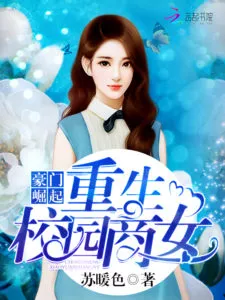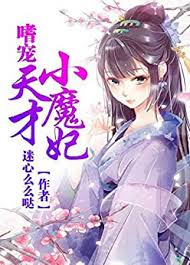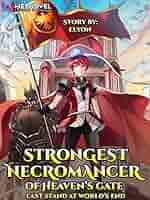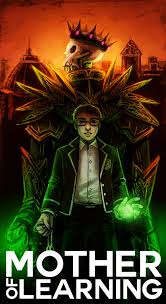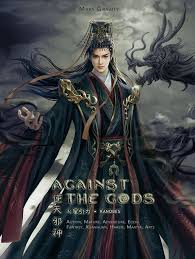The Story in 3 Sentences
Tang Aining begins as a disposable pawn in her family’s shadow empire, surviving as a spy and assassin until betrayal sends her plummeting into the sea.
She awakens in the body of a scorned high school girl, reborn with jade pupils that grant her absolute vision into the hidden value of antiques and the lies behind walls.
From outcast to billionaire tycoon, she weaponizes her power, rebuilds her life with ruthless precision, and forces everyone who once crushed her to kneel before her empire.
Why It Stands Out
1. The Billionaire Rebirth: When Revenge Becomes a Balance Sheet
She doesn’t just rise—she audits. Tang Aining’s return from death isn’t fueled by magic swords or divine blessings, but by cold calculation and a supernatural edge that turns jade appraisal into a war strategy. Her ascent isn’t about destiny; it’s about leverage, timing, and flipping the economic power her family denied her. Fans don’t just cheer her victories—they study them like case studies in dominance.
2. Jade Pupils, Not Just Luck: A Power That Pays Dividends
Forget fireballs or flight—her cheat code is clarity. The jade pupils don’t just see through jade; they dissect deception, expose fraud, and reveal the true worth of people and relics alike. This isn’t a flashy ability for combat—it’s a scalpel in a boardroom, a sixth sense in an auction house. It’s a fantasy power rooted in real-world stakes, making every appraisal a high-tension gamble where she already knows the odds.
3. A Woman’s Wrath, Framed as Business Strategy
The novel reframes feminine rage as a structured enterprise. Every slight, every sneer from relatives and rivals, is logged like a debt. Her revenge isn’t impulsive—it’s quarterly reported. The story weaponizes societal dismissal of women, turning it into fuel for a corporate dynasty. Readers don’t just see a protagonist—they see a movement, a dismantling of patriarchal control through market dominance and unshakable self-worth.
Characters That Leave a Mark
There’s Tang Yaxin – the half-sister whose envy curdles into calculated sabotage, not because she’s evil, but because she was taught that love is earned through inheritance, not sisterhood.
You’ll meet Qi Ziyue, who once promised love but chose convenience when power shifted, his betrayal not a sudden twist but a slow erosion of courage that leaves scars deeper than any knife.
Then there’s Leng Shaoting, not just a quiet ally, but a ghost of another world entirely, his silence laced with cultivation secrets that hum beneath the surface of board meetings and schoolyard politics.
The Flaws Fans Debate
Some fans argue the sheer volume of chapters drags the narrative, with certain arcs feeling like reruns of past victories, diluting the tension with repetitive market takeovers.
Translation inconsistencies plague key emotional scenes, where nuances in dialogue or cultural context get flattened, leaving readers uncertain whether a character’s coldness is intentional or a linguistic gap.
Romance remains a battleground of opinion—many praise Aining’s refusal to center love as her salvation, while others lament the unresolved tension with Qi Ziyue, wishing for closure instead of perpetual emotional distance.
The dense integration of business terminology and auction mechanics, while praised for realism, alienates readers seeking escapism over economics, turning some sections into lectures rather than storytelling.
Must-Experience Arcs
Ch. 1–700: Reincarnation and Early Reconstruction – From the wreckage of her past life, Tang Aining adapts to her new body and uncovers the full scope of her jade pupils. She starts small—flipping antiques, exposing fakes, and surviving schoolyard cruelty—but every move is a calculated step toward autonomy. This arc grounds her trauma and establishes the rules of her new world, where every glance through jade is a defiance of her former helplessness.
Ch. 701–1800: Business Empire Formation – Aining transitions from survival to domination, launching ventures that challenge entrenched elites. She faces hostile takeovers, public smear campaigns, and romantic betrayals, all while expanding her influence across industries. The narrative shifts from personal revenge to systemic disruption, showcasing her evolution from reactive victim to strategic architect of her own dynasty.
Ch. 1801–2936+: Ultimate Confrontations and Resolution – The past resurfaces in full force as her original family seeks to reclaim her wealth, and old lovers reappear with regrets. Aining confronts them not with tears, but with legal teams, media control, and psychological warfare. This arc delivers catharsis through closure—family ties are severed legally and emotionally, rivals are dismantled, and her identity is no longer defined by rebirth, but by legacy.
Killer Quotes
“Cheat me, and I will break your bones.”
“Once upon a time, they laughed at my poor state; now my net worth speaks louder than words.”
“We broke off relations long ago, so get lost!”
“My jade pupils see the truth where others can only guess.”
Cultural Impact
The novel has become a cult favorite in global webnovel communities, particularly among josei and female-identifying readers who see Tang Aining as a symbol of reclaimed agency.
It sparked the meme “What’s your net worth?” as a feminist clapback to condescension, widely shared in online forums and social media.
Fan art frequently depicts Aining not in battle armor, but in tailored suits, standing over shattered jade relics that reform into skyscrapers—a visual metaphor for transformation through power.
Discussions around “jade vision” have bled into real-world interest in antique appraisal, with some readers exploring gemology after being inspired by the protagonist’s precision.
The story’s blend of business strategy and supernatural ability has influenced newer xianxia-adjacent works, birthing a micro-genre dubbed “corporate cultivation.”
Final Verdict
Start Here If You Want:
A female-led power fantasy where wealth is the weapon and dignity is non-negotiable.
A reincarnation story that doesn’t retreat into romance or divine favor, but charges into boardrooms and auction houses with a protagonist who refuses to be soft.
A narrative that treats betrayal not as a tragedy, but as a balance sheet to be settled in full.
Study If You Love:
Complex character psychology where every ally and enemy operates from deeply human flaws and desires.
Genre fusion done right—where cultivation whispers beneath corporate espionage, and high school drama masks billion-yuan stakes.
Long-form storytelling that rewards patience, building a world where every minor character’s fate ties back to the protagonist’s rise.
Avoid If You Prefer:
Lean, fast-paced plots without extended arcs or economic detail.
Romance as the central emotional drive—here, love is secondary to self-ownership.
Simple moral binaries; this story thrives in the gray, where even the protagonist’s justice feels cold and deliberate.
